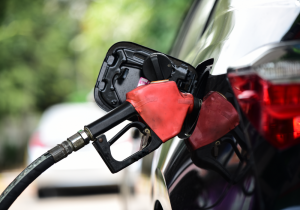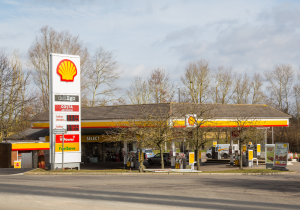- Have any questions?
- 0161 914 5500
- [email protected]

RAF Regular & Reserve Kawasaki 2021 – Oulton Park
June 28, 2021
Cut Road Accidents with a Multi-Camera DVR System
November 5, 2021
It’s hard to miss all the news reports about the UK fuel shortages and you’ve likely seen the long lines at your local petrol station. Lots of people have even found their local petrol stations have had to close due to panic buying. The result has been that those in need of fuel such as the emergency services, commuters and fleets have been unable to work. Reducing fuel consumption not only saves you money but also makes your fuel last longer in the face of a fuel crisis.
The good news is there’s a lot of easy steps you can take to reduce your fuel consumption.
1. Reduce Trips
Where you can, aim to reduce the number of trips you take. Cold engines use more fuel in the first five miles, therefore if you have multiple errands to make in one day, it’s best to try to do them all in one trip. As a lot of people use their cars for their daily commute, putting all your trips in one isn’t always feasible. Instead, we recommend grouping up your trips on weekends or days you’re not working. If you need to pop out, try to walk, cycle or take public transport.
2. Improving driving standards
Driving erratically can increase fuel consumption by 60%. Ideally, you want to drive around 50 miles per hour (dependant on the speed limit), in the highest gear. Pull away smoothly, anticipate traffic light changes and hazards so you don’t have to sharply brake. Bad driving habits can be hard to notice by yourself, especially if you’ve been driving for a long time. Additionally, if you own a vehicle-related business, improving driving standards will reduce fuel consumption. Driving better benefits businesses and individuals by reducing fuel consumption, reducing general wear and tear and keeping the roads safer. It’s easy to monitor your driving behaviour with Pay as you Track’s ‘Behaviour Report’. The report gathers information from your vehicle tracking, letting you know a breakdown of harsh acceleration, braking and cornering.
3. Reduce vehicle weight
The next one might seem obvious but it can be easily overlooked. Whether it’s bags leftover from your summer holidays or those boxes you’ve been meaning to take to the skip, make sure to remove anything heavy from your car that you don’t need for that journey. It’s needless to say, the heavier the car the more fuel it will use. By looking around your car and removing anything that may be heavy, your car will perform better and you will reduce fuel consumption.
4. Drive in the correct gear
Avoid pushing your foot all the way down on the accelerator. If you are having to put your foot all the way down on the accelerator to stay in a certain gear, it’s more fuel-efficient to go down the gear and take your foot off the accelerator a little.

5. Drive at the speed limit
This point brings up the time vs money debate. It may be tempting to cut down your journey time by travelling at a faster speed. Lookers.co.uk states ‘While you may arrive roughly about 20 minutes early on a 200-mile trip by travelling at 80mph instead of 70mph, it could also be a false economy.’ Despite the car being on the road for 20 minutes less, this 20 minutes saved can cost you an extra £7 of fuel.
6. Check your tyre pressure
If you’ve recently passed your driving test, this will have been drilled into you. Before starting a long journey check tyre pressure before a long journey. It’s recommended that you check your tyre pressure with a tyre pressure gauge every two weeks. You can find your vehicle’s recommended tyre pressure in the cars vehicle handbook or in the inside door. Check out Auto. Express’ top tyre pressure gauges here, for 2020’s best and most affordable gauges.
7. Turn off your air conditioning
Now that the weather is getting colder, you can save on fuel by turning off your air conditioning. Kwik-Fit states that air-conditioning ‘could increase your fuel usage by as much as 10 per cent.’ The air conditioning uses a compressor that is connected to the belt of the engine, therefore requiring energy and therefore fuel. ‘This consumes between approximately 0.2 litres and 1 litre of petrol per 100 km.’
“Air conditioning of a car consumes between 0.2 and 1 litre of petrol at 100 km.” – Endesa.com
With some simple changes, you’ll be able to make your fuel stretch further. The BBC state’s ‘the Ministry of Defence is preparing about 150 qualified military drivers to deliver fuel – and has another 150 personnel ready to support them.’ The fuel shortage could have been avoided by not panic buying, so we advise you only fill up your tank when you need to. Some petrol stations have put a £30 cap on fuel, so by implementing some changes you can reduce fuel consumption and avoid lots of trips back to the petrol station.
It can be hard to know exactly how much you are spending on fuel but with Pay as you Track’s reports, you can keep an eye on your fuel expenses and driving behaviour. You’re able to flag down any issues that may be increasing fuel consumption and keep a log of your expenses. Find out more information about our reports here.
References:
https://www.lookers.co.uk/blog/10-best-fuel-saving-tips-for-motorists
https://www.kwik-fit.com/blog/how-much-fuel-does-air-conditioning-use
https://www.endesa.com/en/blogs/endesa-s-blog/air-conditioning/heating-air-conditioning-car
https://www.autoexpress.co.uk/product-group-tests/36242/best-digital-tyre-pressure-gauge-2020
https://www.bbc.co.uk/news/explainers-58709456
Get in Contact
|
|
